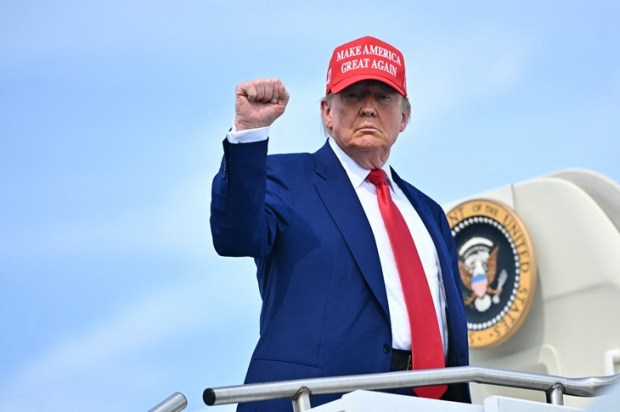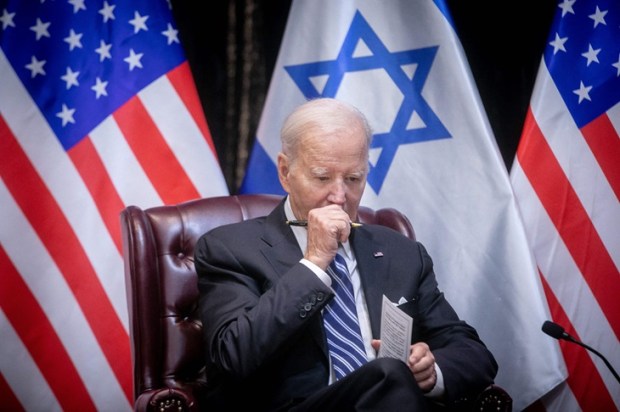Since declaring a decisive victory over the Covid pandemic in February, Chinese President Xi Jinping has engaged in an active diplomacy drive, visiting Putin in Moscow as well as hosting various dignitaries in China.
Part of this outreach has been to sign needed trade agreements and to secure reliable access to energy, food, and raw materials.
Another objective of Xi’s diplomacy has been to challenge the US-led global order and push back against attempts to isolate it on the global stage.
Xi is working to strengthen China against an increasingly united West. He is assiduously making efforts to build an anti-Western, authoritarian bloc consisting of China and Russia along with Iran and willing members of the Global South.
Xi’s message is clear: Beijing is not alone and is part of a powerful coalition of states that do not need the West nor share its values.
Of particular concern to Xi are the containment measures being implemented by the US, its allies, and partners.
The Quad, the AUKUS alliance, new American military bases in the Philippines, Washington’s diplomatic overtures to Hanoi, steep hikes in Japanese defense spending, and efforts by Seoul and Tokyo to set aside their differences and present a united front against China have all caught Beijing’s attention.
Xi’s international outreach has also sought to drive a wedge between Washington and its friends.
This was on full display during the April 5-7 visit to China by French President Emmanuel Macron and European Commission President Ursula von der Leyen.
Ahead of the trip, Macron avoided criticisms of Beijing and spoke of France’s commitment ‘to continue to have a commercial relationship with China’.
Upon arriving, he was treated to full honours as he touched down with dozens of executives from L’Oreal, BNP Paribas, and Airbus, among other companies. The accompanying French corporate delegation signalled that Macron was still interested in growing the France-China commercial relationship despite efforts by the US and other allies to decouple from the Chinese market.
For her part, von der Leyen arrived in China just days after delivering a scathing speech in Brussels urging Europe to ‘de-risk’ from China and asserting that China’s ‘clear goal is a systemic change of the international order with China at its centre’ where ‘security and economy take prominence over political and civil rights’.
This contrast in approach between the two European leaders provided Xi with an opportunity to create fissures within the West.
What followed was cunning, if not predictable behaviour by Beijing. Xi laid out the red carpet for Macron while giving the cold shoulder to von der Leyen in an attempt to deepen Europe’s divisions while picking off a key American ally, France. This effectively upended Marcon’s and von der Leyen’s attempt to project Western unity on the trip, demonstrating the EU’s lack of a coherent policy on China.
While returning to France, the French President’s statements to the media played into Xi’s hands just as the People’s Liberation Army Navy commenced its mock bombing raids and blockade of Taiwan.
Eager to display independence from Washington and to show off his Gaullist credentials, Macron called for strengthening European autonomy and argued that Europe should not ‘get caught up in crises that are not ours’, urging Europe to resist pressure to become ‘America’s followers’.
Xi also skilfully used Brazilian President Luiz Inácio Lula da Silva’s April 11-14 China visit to create distance with the US and EU.
Promises of Chinese investment as a way to help Brazil’s struggling economy were made, and a platform was provided for Lula’s moral relativist stances on the war in Ukraine.
Xi’s efforts paid off. While in Beijing, Lula continued his non-interventionist approach to the war in Ukraine, calling for Washington to ‘stop encouraging war’ and for a ‘peace group’ to be formed to broker a Russia-Ukraine deal.
Lula also backed China’s efforts against American global dominance by publicly calling for a de-dollarisation of international trade.
While accusing the International Monetary Fund of ‘asphyxiating’ the economies of certain countries, Lula urged BRICS nations to create a replacement to the US dollar ‘to finance trade relations between Brazil and China, between Brazil and all the other BRICS countries’.
Lula’s announcement took place at the Shanghai-based New Development Bank where his political protégé, former Brazilian President Dilma Rousseff, was just elected as president, reflecting the close relationship between Lula and Xi.
Lula’s statements challenging Western financial hegemony and the election of Rousseff as head of the NDB BRICS bank support Xi’s ongoing efforts to construct an alternative to the global governance system of the US, the World Bank, and the International Monetary Fund.
It is also part of Beijing’s vision to protect its economy from American pressure and to restore what it sees as its historic role as a political, economic, and cultural leader.
This involves China’s quest to become the head of the Global South and to build an interconnected global economy that is reliant on the Chinese market.
More broadly, Xi understands that his backing of Putin during the war in Ukraine has changed how the West views him and their reliance on Chinese trade and investment. Xi’s recent outreach to Macron, Lula, and others is an attempt to thwart American efforts to isolate China politically and economically. Such geopolitical triangulation is likely to continue for the foreseeable future.
Ted Gover, Ph.D., is Associate Clinical Faculty at Claremont Graduate University in Los Angeles.

























